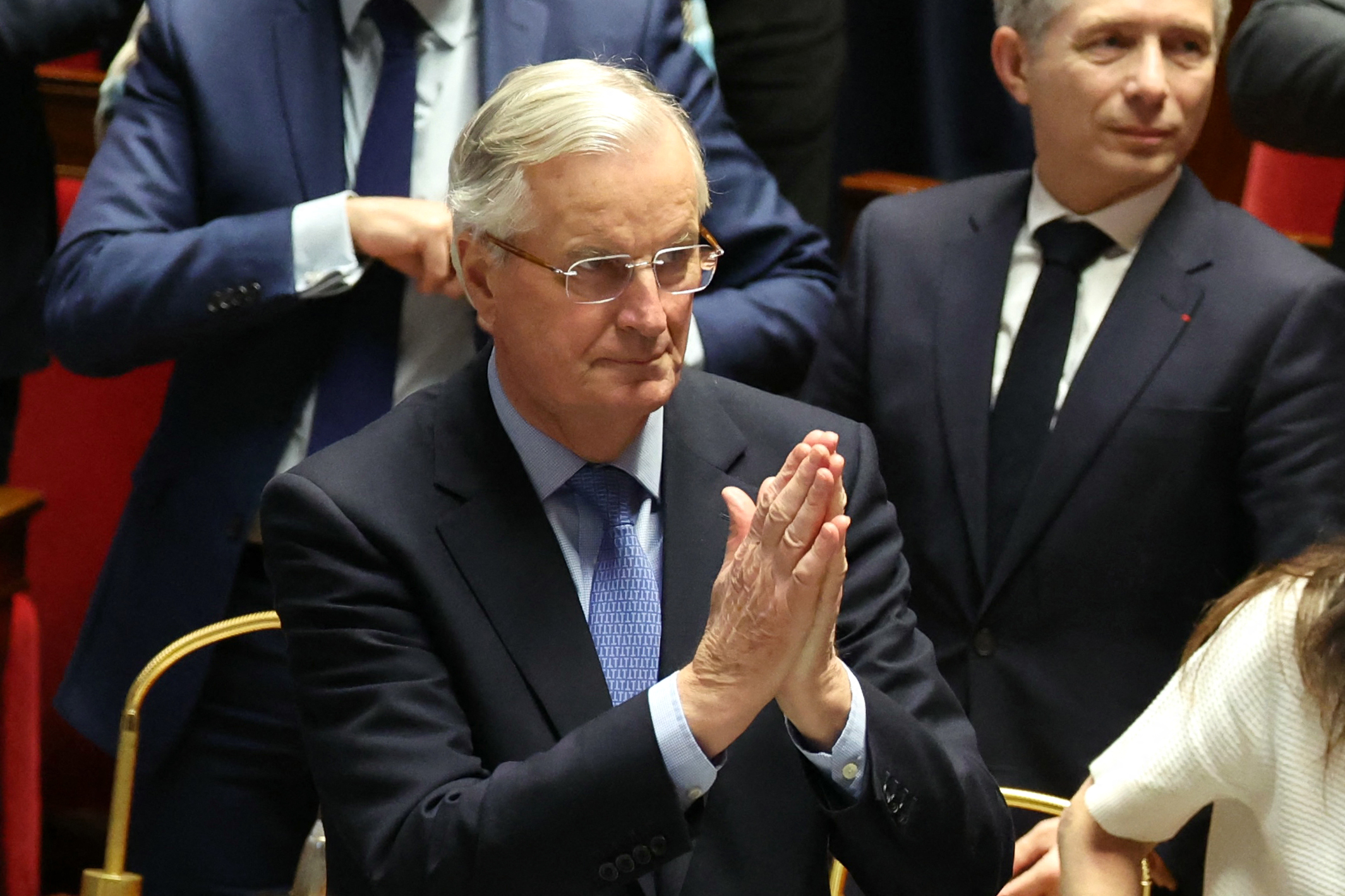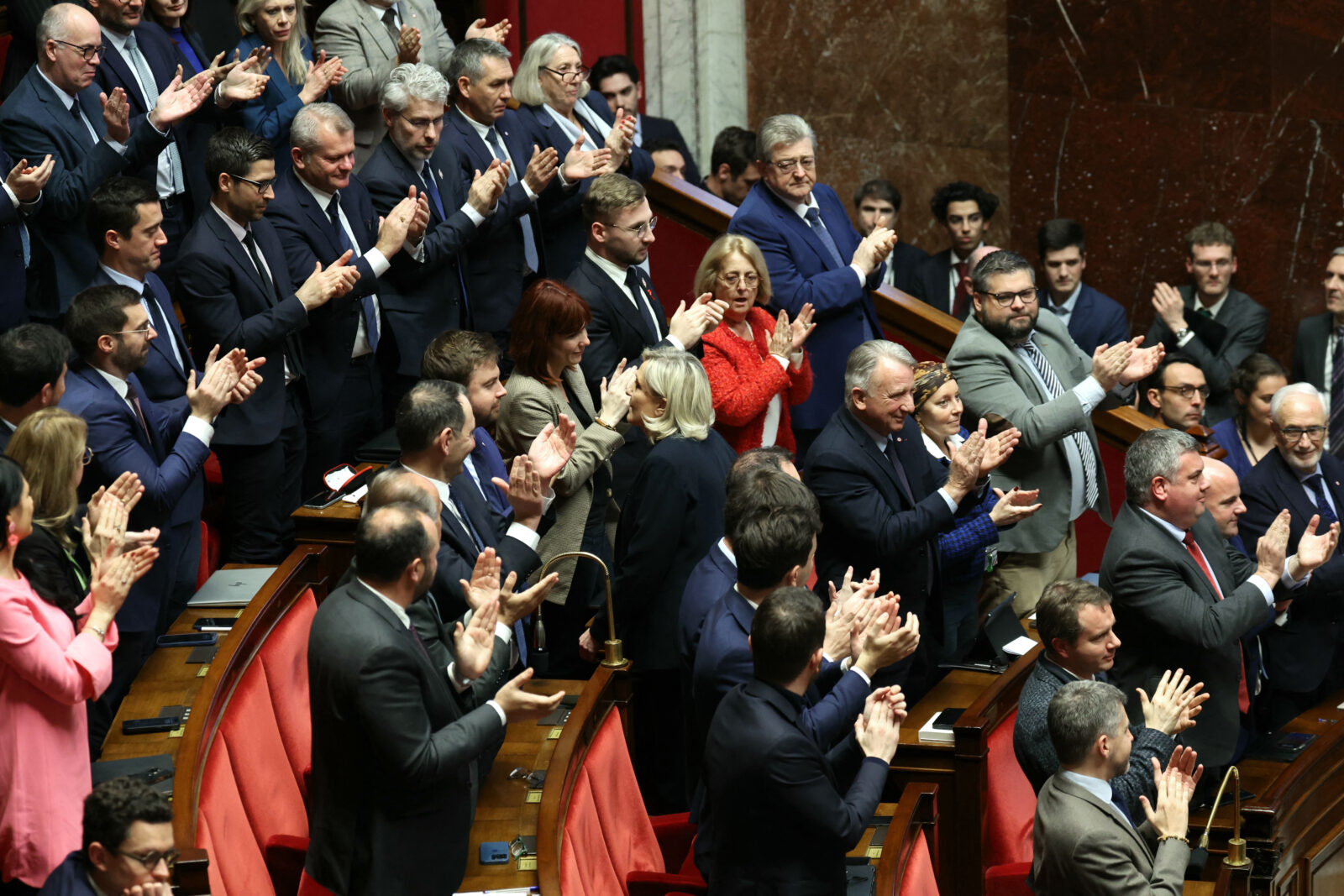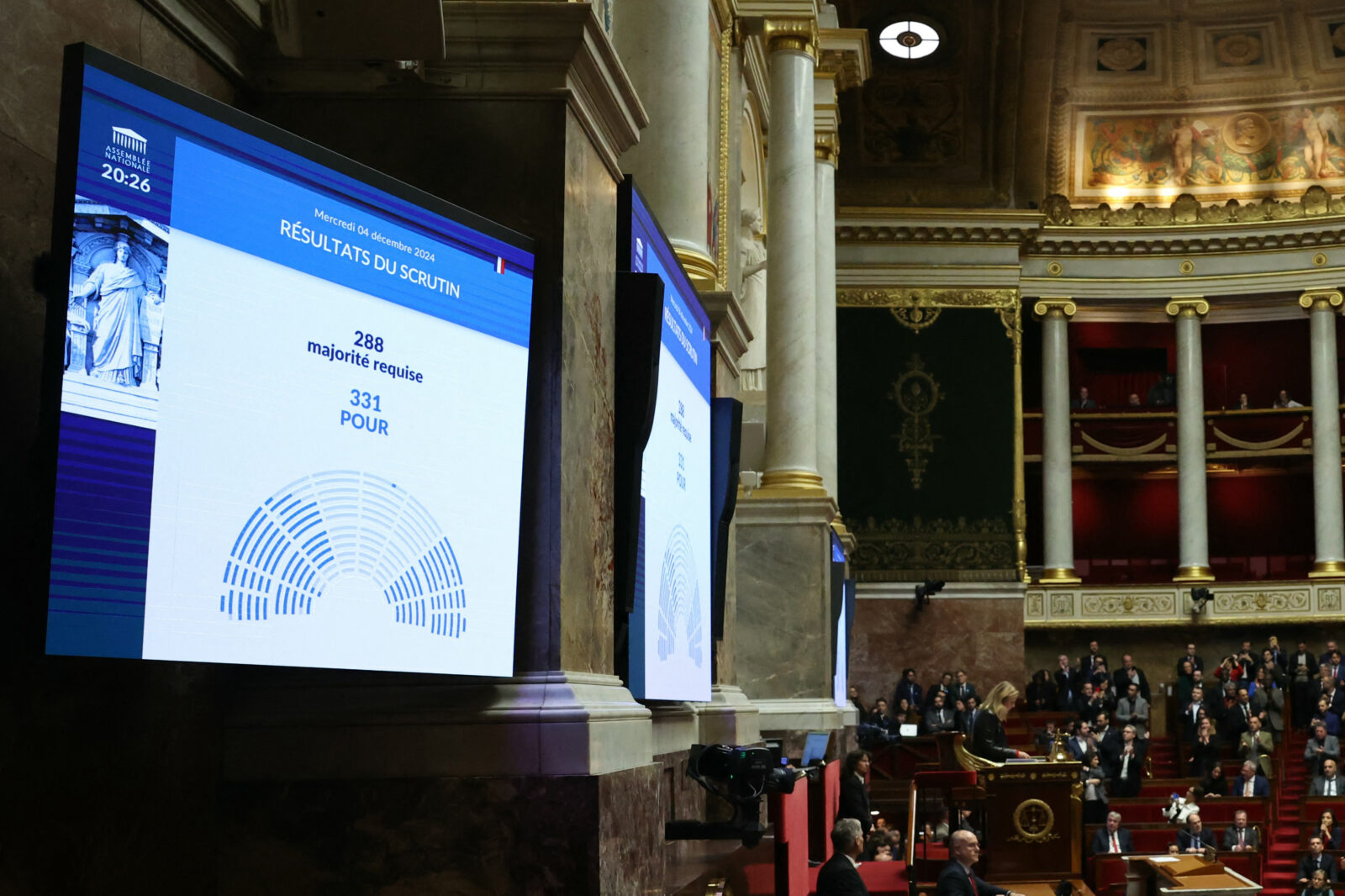
French Prime Minister Michel Barnier resigned on Thursday after losing a no-confidence motion in the National Assembly, marking a significant political shift just three months into his term.
The Elysee Palace confirmed Barnier's resignation, stating that President Emmanuel Macron has "taken note" of the decision.
Despite stepping down, Barnier and his ministers will continue to serve on a caretaker basis, handling daily governmental duties until a new administration is appointed, according to the presidency's statement.
The no-confidence motion, supported by both the hard-left and far-right parties, led to Barnier's ousting in a historic vote that has plunged the country into deeper political uncertainty. Macron now faces the challenge of naming a successor to lead a divided parliament.
President Emmanuel Macron began searching for a new prime minister on Thursday after the ousting of Michel Barnier's government in a historic no-confidence vote, as France faces deepening political uncertainty.
Barnier, who holds the record as the country's shortest-serving premier in modern times, formally submitted his resignation to Macron at the Elysee Palace following Wednesday's parliamentary defeat. The no-confidence vote, the first successful one since 1962, forced Barnier and his cabinet to step down.
While Barnier and his ministers will continue handling daily affairs, it remains unclear when Macron will appoint a successor. The president, however, appears keen to avoid a prolonged leadership vacuum, especially with key international events, such as the reopening of Notre Dame Cathedral on Saturday, looming.
 This photograph shows the result of the no-confidence vote on Prime Minister Michel Barnier's administration displayed on a screen at the National Assembly in Paris on December 4, 2024 after French MPs voted to oust the government after just three months in office in a move which deepens a political crisis in the country. - The French National Assembly was voting two motions brought by the French left-wing Nouveau Front Populaire (New Popular Front) NFP coalition and the French far-right Rassemblement National (National Rally) RN party in a standoff over 2025's austerity budget, which saw French Prime Minister force through a social security financing bill without a vote (article 49.3) on December 2, 2024. (Photo by Alain JOCARD / AFP)" alt="French PM Michel Barnier resigns following no-confidence vote">
This photograph shows the result of the no-confidence vote on Prime Minister Michel Barnier's administration displayed on a screen at the National Assembly in Paris on December 4, 2024 after French MPs voted to oust the government after just three months in office in a move which deepens a political crisis in the country. - The French National Assembly was voting two motions brought by the French left-wing Nouveau Front Populaire (New Popular Front) NFP coalition and the French far-right Rassemblement National (National Rally) RN party in a standoff over 2025's austerity budget, which saw French Prime Minister force through a social security financing bill without a vote (article 49.3) on December 2, 2024. (Photo by Alain JOCARD / AFP)" alt="French PM Michel Barnier resigns following no-confidence vote">
 This photograph shows the result of the no-confidence vote on Prime Minister Michel Barnier's administration displayed on a screen at the National Assembly in Paris on December 4, 2024 after French MPs voted to oust the government after just three months in office in a move which deepens a political crisis in the country. - The French National Assembly was voting two motions brought by the French left-wing Nouveau Front Populaire (New Popular Front) NFP coalition and the French far-right Rassemblement National (National Rally) RN party in a standoff over 2025's austerity budget, which saw French Prime Minister force through a social security financing bill without a vote (article 49.3) on December 2, 2024. (Photo by Alain JOCARD / AFP)
This photograph shows the result of the no-confidence vote on Prime Minister Michel Barnier's administration displayed on a screen at the National Assembly in Paris on December 4, 2024 after French MPs voted to oust the government after just three months in office in a move which deepens a political crisis in the country. - The French National Assembly was voting two motions brought by the French left-wing Nouveau Front Populaire (New Popular Front) NFP coalition and the French far-right Rassemblement National (National Rally) RN party in a standoff over 2025's austerity budget, which saw French Prime Minister force through a social security financing bill without a vote (article 49.3) on December 2, 2024. (Photo by Alain JOCARD / AFP)
Macron met with parliamentary leaders and will address the nation later on Thursday as political tensions mount. The situation has sparked speculation over the possibility of early elections, though Macron firmly rejects calls for his resignation.
The no-confidence vote, proposed by the hard left and supported by Marine Le Pen's far-right faction, stemmed from Barnier's austerity-driven 2025 budget proposal, which failed to gain support in the hung parliament.
Now, with no clear majority in sight, Macron faces the challenge of naming a new prime minister who can navigate France's turbulent political landscape.
Possible candidates include Defence Minister Sebastien Lecornu, centrist ally Francois Bayrou, and former Socialist premier Bernard Cazeneuve.